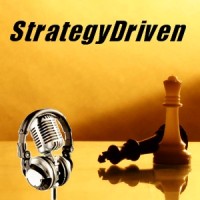Doing ‘Different’ Right: Ten Big-Time Difference Makers and How They Made Some Serious Dough Thinking Outside the Box, part 2 of 2
The Difference Maker: The Bargains Group
The Dared to Be Difference: Teaming up for A-level customer service. Jody Steinhauer began The Bargains Group in 1988 from her kitchen table by purchasing a variety of different clothing and reselling it to discount clothing stores. Today, she runs a multi-million-dollar firm with over 4,000 different items for sale, but the most interesting aspect of the company is its employees.
The Bargains Group is a discount wholesaler of promotional business products, family clothing, accessories, gifts, toys, bedding and linens, personal hygiene products, and tradeshow promotional materials. So how exactly does a small firm with only 20 employees manage to make millions every year without offering prices much lower than their competitors? It’s simple: They hire the right people. By focusing on hiring fun, vivacious people who believe strongly in the culture of service, they are able to actually service each of their customers personally. They don’t even have a voicemail system!
While a lot of firms advertise how ‘different’ their people are, or how they focus on service, The Bargains Group actually proves this assertion. They don’t advertise or employ salespeople – yet they manage to make millions of dollars selling their products. Make sure that your staff is a differentiator for your company. There is great value in good customer service. Happy customers will not only stick around, they will also spread the word!
Hi there! This article is available for free. Login or register as a StrategyDriven Personal Business Advisor Self-Guided Client by:
Subscribing to the Self Guided Program - It's Free!
About the Author

(Wiley, 2010) and The Connectors: How the World’s Most Successful Businesspeople Build Relationships and Win Clients for Life
(Wiley, 2009). She is the founder of Red Zone Marketing, LLC, which consults with businesses from entrepreneurial firms to Fortune 500 corporations on strategic marketing planning and business growth. Maribeth has personally consulted with some of the world’s most successful CEOs, entrepreneurs, and professionals. An internationally recognized speaker, she shares the tactics that businesspeople use today to create more sustainable business relationships, sales, and marketing successes.

 Elinor Stutz, CEO of Smooth Sale, LLC believes building relationships before the sale and continuing long after is the only way to sell and build a dynamic business. Elinor’s book,
Elinor Stutz, CEO of Smooth Sale, LLC believes building relationships before the sale and continuing long after is the only way to sell and build a dynamic business. Elinor’s book,  Barry Libert is the author of
Barry Libert is the author of  StrategyDriven Podcasts focus on the tools and techniques executives and managers can use to improve their organization’s alignment and accountability to ultimately achieve superior results. These podcasts elaborate on the best practice and warning flag articles on the StrategyDriven website.
StrategyDriven Podcasts focus on the tools and techniques executives and managers can use to improve their organization’s alignment and accountability to ultimately achieve superior results. These podcasts elaborate on the best practice and warning flag articles on the StrategyDriven website.
 Marshall Fisher, co-author of
Marshall Fisher, co-author of